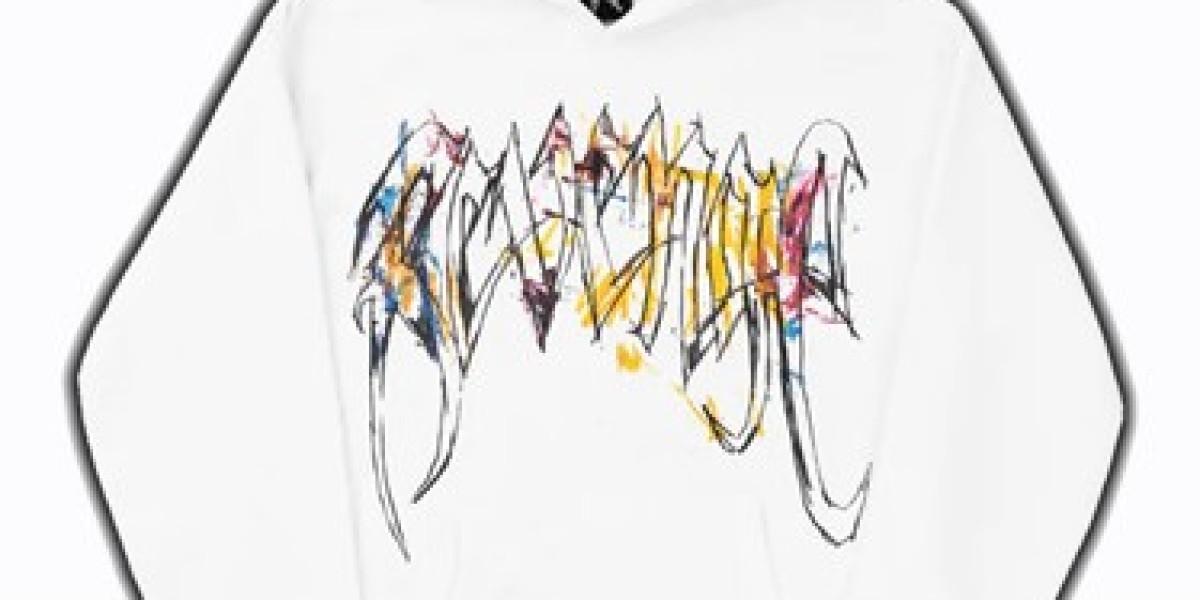In the fast-paced world of fashion, certain brands emerge that capture the zeitgeist and redefine trends. Revenge Clothing have become a cornerstone of modern streetwear, blending innovative design, cultural resonance, and high-quality craftsmanship. This article delves into the rise of Revenge Official Clothings, exploring their origins, cultural impact, design philosophy, and the factors contributing to their status as a revolutionary force in fashion. Through ten comprehensive sections, we will unpack how Revenge Hoodies have become synonymous with style, individuality, and cultural significance.
Revenge Official Clothing Iconic Fashion Brand
There is not so much inside information about the Revenge Clothing brand. We know it first appeared on Instagram on May 27th, 2016. A picture of a man with his face covered, wearing a t-shirt with «revenge» text, is geotagged as Start. The brand is based in Los Angeles, though there is no brick-and-mortar store you can walk in. Everything is sold online and through pop-ups. The owner is Garette, a very secretive man in his early 20s, who never shows his face. From time to time, there are live streams on the brand’s Instagram to announce upcoming drops, to show the warehouse or to answer questions and suggestions.
Revenge Clothing Innovation and Uniqueness
At the heart of Revenge success is its design philosophy, which emphasizes innovation and uniqueness. The brand’s designers Revenge Official Clothings continuously push the boundaries of streetwear by experimenting with new materials, techniques, and concepts. This dedication to innovation has resulted in a diverse range of products that cater to a wide audience while maintaining a distinct and recognizable style.
Revenge Clothings Influences and Inspirations
One of the defining characteristics of Revenge Clothings is its ability to draw inspiration from a diverse range of sources. The brand seamlessly blends elements of street art, music, global cultures, and contemporary fashion to create designs that resonate with a broad audience. This fusion of influences results in clothing that is rich in meaning and cultural significance.
Revenge Clothing The Role of Social Media
Revenge Clothing is a fashion brand that leverages social media to showcase its products, engage with customers, and build a community around its brand. Social media plays a crucial role in Revenge Clothing's marketing strategy, enabling the brand to:
1. Showcase products: Share high-quality images and videos of their clothing items, allowing customers to see the products from different angles.
2. Build brand awareness: Increase visibility and reach a wider audience, including potential customers who may not have discovered the brand otherwise.
3. Engage with customers: Respond to comments, answer questions, and gather feedback to improve customer service and product development.
4. Collaborate with influencers: Partner with social media influencers to promote products and expand the brand's reach.
5. Run targeted ads: Utilize social media platforms' advertising capabilities to target specific demographics, interests, and behaviors.
6. Share brand stories: Give customers a glimpse into the brand's history, values, and design process to create an emotional connection.
7. Drive website traffic: Encourage social media followers to visit the Revenge Clothing website to make purchases or learn more about the brand.
8. Monitor trends: Keep up-to-date with the latest fashion trends, customer preferences, and industry developments.
By effectively utilizing social media, Revenge Clothing can foster a loyal customer base, increase sales, and establish itself as a prominent player in the fashion industry.
The Revenge Hoodies Rise of Streetwear
The Revenge Hoodies are a notable example of the rise of streetwear in the fashion industry. Streetwear, a genre that originated in the 1980s and 1990s, has evolved into a global phenomenon, influencing mainstream fashion and culture. Key factors contributing to the rise of streetwear include:
1. Hip-hop and skate culture: Streetwear's roots in hip-hop and skate culture have shaped its aesthetic and attitude.
2. Comfort and practicality: Streetwear prioritizes comfort and versatility, reflecting the demands of modern urban lifestyles.
3. Influence of social media: Social media platforms have amplified streetwear's reach, allowing brands to showcase their products and connect with a global audience.
4. Collaborations and limited editions: Strategic collaborations and limited-edition releases have created hype and driven demand for streetwear products.
5. Democratization of fashion: Streetwear has challenged traditional fashion hierarchies, making high-end style accessible to a broader audience.
6. Sustainability and athleisure: Streetwear's emphasis on comfort and practicality has aligned with the growing demand for sustainable and athleisure wear.
7. Globalization and diversity: Streetwear has incorporated diverse cultural influences, reflecting the globalized and interconnected world we live in.
The Revenge Hoodies, with their bold designs and comfortable fits, embody the spirit of streetwear. As a symbol of this cultural movement, they represent a shift towards fashion that is authentic, expressive, and unapologetic.
Conclusion
In conclusion, Revenge Clothing, particularly the Revenge Hoodies, has successfully tapped into the streetwear phenomenon, leveraging its popularity to create a loyal customer base and establish a strong brand identity. By embracing the key elements of streetwear, such as comfort, bold designs, and a connection to urban culture, Revenge Clothing has:
Filled a market gap: Catering to a demand for authentic, high-quality streetwear. Built a community: Creating a loyal following of customers who share the brand's values and aesthetic. Stayed relevant: Continuously adapting to changing fashion trends and consumer preferences. Fostered collaborations: Partnering with influencers, artists, and other brands to expand its reach. Embraced digital marketing: Effectively utilizing social media to showcase products, engage with customers, and build brand awareness.








